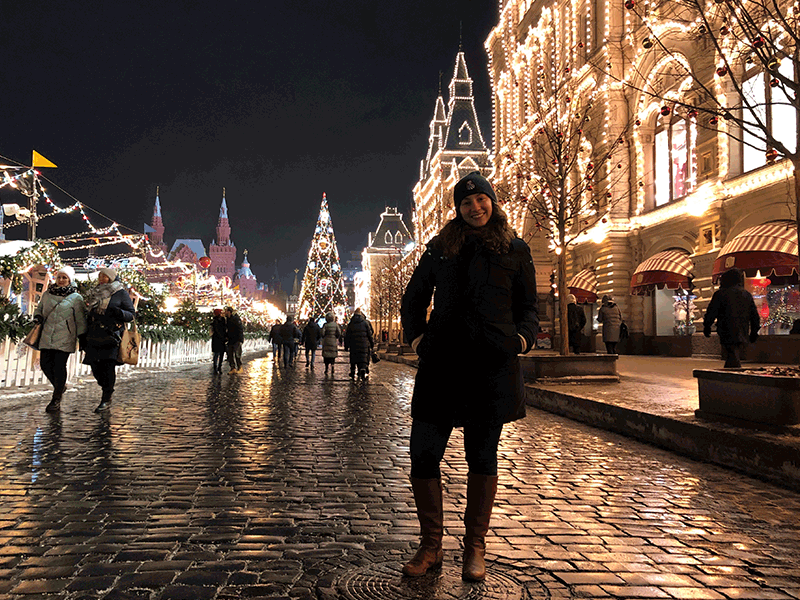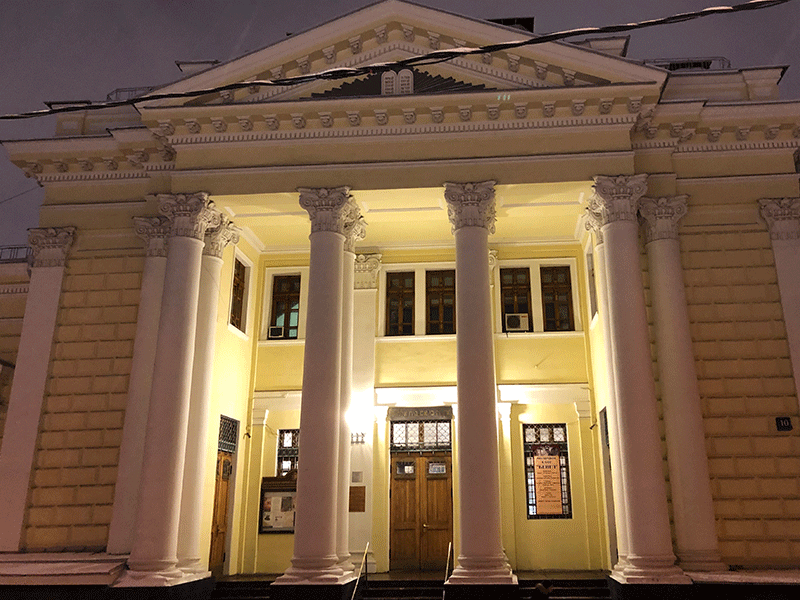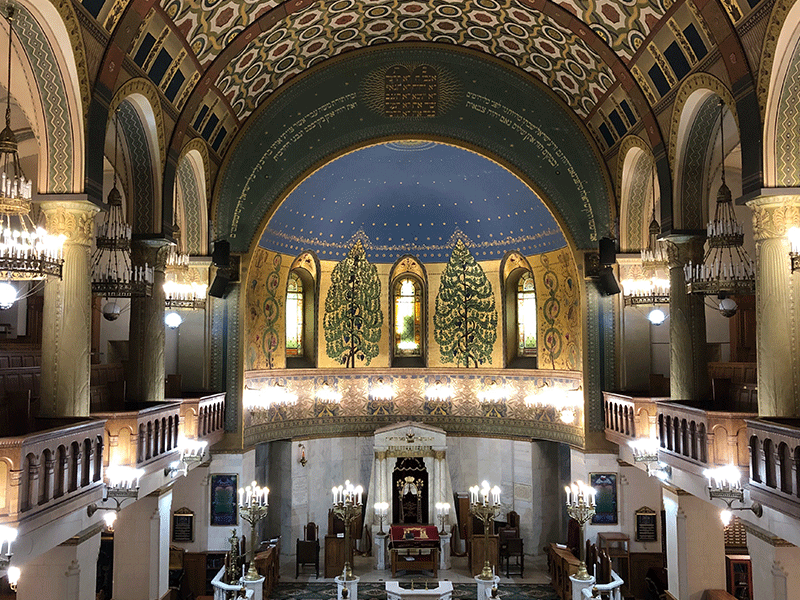As the fall semester began to wind down and I was finishing up exams, I started to look for things to do over the winter break. Unlike most Canadian Jews that tend to migrate south to warm places like Florida or Mexico, I chose to go to Russia in the dead of winter.
Why? Did I feel some kind of pull to the country that oppressed my family for generations, that killed millions of its own people and is continuously trying to rewrite its own history? Not particularly, but I was interested in seeing the country where my parents grew up, and get to know the family members that for some truly inexplicable reason, still live there.
I spent the bulk of my three-week trip in the centre of Moscow, the capital city of this enormous nation. It’s obviously very beautiful, rich in culture and exquisite buildings, but some things are just hard to overlook. I saw dogs wearing matching fur coats with their owners, men doing “slav squats” on street corners, and old women panhandling on the cold and slushy streets.
READ: MIRACLES AND REDEMPTION CAN BE LIMITING WITHOUT A STRUGGLE
And of course, I saw Vladimir Lenin. Not only in his terrifying mausoleum in the Red Square, but just about everywhere. Paintings, busts and mosaics of the famous revolutionary were in subway stations, museums and on keychains, t-shirts and magnets. I even saw a cardboard cutout of him and his comrade Josef Stalin on the street, beside a statue of Pushkin. I visited streets and squares named after famous Russian cultural figures, from artists to writers to composers. I got to see the very place where my family lived for generations, miraculously surviving the revolution, the world wars, and the communist regime.

However, despite the sad and somewhat disturbing things that I saw, they were all in a way, expected. What I didn’t expect, and what upset me the most, was that all of my relatives – who have more Jewish blood than I do – feel no connection to their Jewish roots. Aside from the physical leftovers of the communist regime, something that people can’t seem to shake down are the spiritual reverberations of communism, a regime that forced atheism on its people, leaving them devoid of any connection to religion.
After the fall of the Soviet Union, people were finally able to begin openly participating in religious life. Many began to search for God, for a sense of purpose and meaning in their lives. However, Judaism was foreign for a lot of Jews. The language was different, the rituals strange, and the whole religion appeared very alien. As a result, many secular Jews turned to the Russian Orthodox Church in order to feel a connection to fill this divine void.
I am not a particularly religious person, but when my uncle with the last name Levinson tells me that he does not consider himself a Jew, I find that upsetting. Of course, I am not in a position to judge. As someone that was born in Israel and raised in Canada, my Jewish identity was never something that I had to hide. That is a different story in Russia, and I’m not sure how I would have acted in their position.

Interestingly, a 2010 census found that there are roughly 53,000 Jews living in Moscow, but it is estimated that there are around 150,000 people of Jewish origin in the city. The assimilation rate is high, but if you know where to look, Jewish life in Moscow is vibrant.
Stepping inside the Bolshaya Bronnaya Synagogue, a Chabad shul that was built before the revolution, the place was bustling with activity. The synagogue is one of approximately 20 in Moscow, and has a large kosher restaurant, a mikveh, classrooms, a bookstore and a lecture hall. Unsurprisingly, the security was intense, as each person needed to go through a metal detector and have their bags searched by security guards before being allowed inside. In 2006, the synagogue was attacked by a skinhead who managed to stab nine people before a rabbi and his son tackled the assailant and held him until police arrived. A movie was made about the incident.
Another synagogue, the Moscow Choral Synagogue had a much more relaxed atmosphere. Although it was the sixth night of Hanukkah, the synagogue was mostly empty, save for a few rabbis that I could hear arguing about something in another room. It’s considered to be one of Russia’s main synagogues, with its beautiful architecture, high ceiling and bright yellow exterior. It’s famously the site where former Israeli prime minister Golda Meir went for a Rosh Hashanah service in 1948, angering the Soviet government. It’s also where my grandfather used to go once a year to get matzah for Passover, and sneak it back home.
Across the street stands a miniature version of the Western Wall, that was not only covered in snow, but in graffiti that had been poorly covered up. Not much resemblance to the real thing, but the gesture was appreciated.
However, Jewish life in Moscow extends beyond the synagogue walls. There is a Jewish Museum and Tolerance Centre, that has a great deal of multimedia exhibitions that educate people about Russian-Jewish life in both the past and present, among other things. There are four Jewish schools throughout Moscow, and many Jewish initiatives, like Limmud FSU conferences and Hillel events that aim to engage Russian-Jewish university students. There is even a Jewish theatre, that performs both classical and modern works by Jewish authors.
It’s safe to say that there is no shortage of Jewish activities and initiatives that help bring the community together, allowing people to connect with their roots. But the fear of anti-Semitism runs deep, especially for the generations that lived during the Soviet Union. This is obviously not the case for everyone, and all people have had a different experience with this issue.
I have a complicated relationship with Russia. On the one hand, my family was saved from almost certain destruction by the Nazis because the German advance was stopped outside Moscow. But the city that saved my family and millions of others, is also at least in part responsible for the annihilation of its Jewish identity. Synagogues and Jewish centres can be easily rebuilt, but to rebuild a deep connection to one’s identity and history is far more difficult, and for some — impossible.

